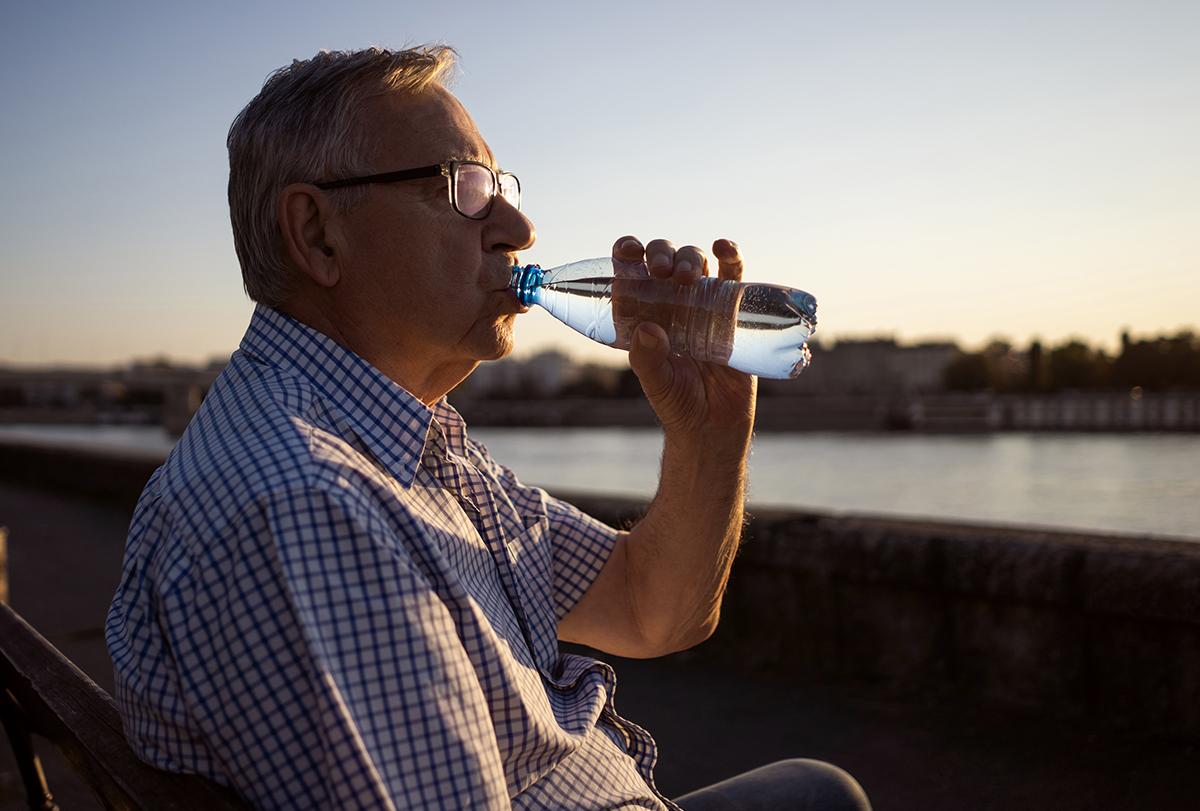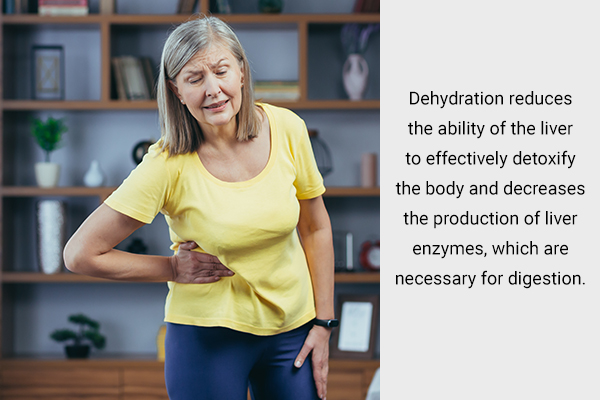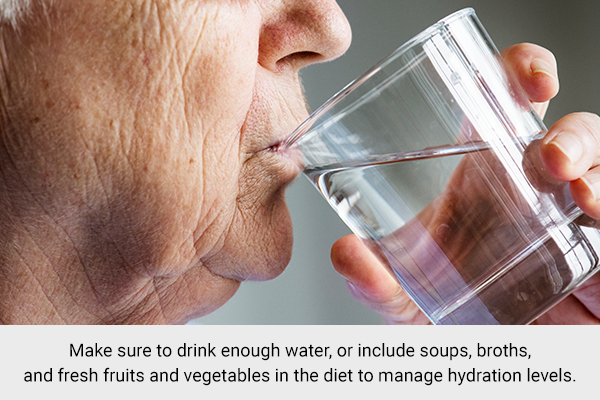In this article:
Not drinking enough water throughout the day is one of the major causes of dehydration in all age groups, but it is particularly concerning for the elderly.

Drinking less water has been identified as a major cause of death in the older population, (1) which shows how important it is for them to drink enough water.
Seniors are often dehydrated from the lack of drinking enough water without even realizing it. According to the latest European Society for Parenteral and Enteral Nutrition (ESPEN), the required water intake is ≥2.0 L for elderly men and ≥1.6 L for elderly women. (2) These requirements can vary based on health and the presence of additional comorbidities.
Normal fluid losses throughout the day via skin, urine, and bowel movement are common and expected. However, it is necessary to replace this lost water before side effects develop.
Some other common causes of dehydration in the elderly include losses through the skin during extreme heat, exercise, or burns, medications such as diuretics, vomiting, diarrhea, and laxative use.
Due to their aging body, the elderly find it difficult to deal with these losses and need to make up for them immediately by drinking water.
Consequences of Drinking Less Water in the Elderly
Unmanaged and prolonged dehydration as a result of drinking less water throughout the day can cause these complications in the elderly.
1. Changes to mental well-being
An underrated but perhaps the most important complication of dehydration in the elderly is poor cognitive performance. Studies have found a decline in cognitive functioning and general well-being in dehydrated elderly. (3)
Research findings have suggested a low fluid volume in between the cells and changes to proteins in the brain to be major reasons for cognitive decline as a result of dehydration. (4)
2. Renal failure
With aging, all the body’s organs generally begin declining in function. Since the kidneys are responsible for clearing waste out of the body with the help of water, a dehydrated state can reduce this function and cause the kidneys to collect waste, which can impact the organ negatively and cause kidney failure. (5)
3. Liver failure

As mentioned earlier, aging brings with it a decline in general organ function. A general condition many elderly face is liver failure, which results in dehydration but is also worsened by it. (6)
Dehydration reduces the ability of the liver to effectively detoxify the body and decreases the production of liver enzymes, which are necessary for digestion. (7)
4. Accumulation of lactic acid in the muscles
Lactic acid is produced in the body as a result of many normal physiological functions. In a healthy well-hydrated state, it is washed out of the body via water.
When the body is dehydrated, however, lactic acid accumulates in the body, especially the muscles, and causes severe cramps and pains. (8)
5. Increased blood pressure
Less water in the body also reduces blood volume, making it thicker. This causes the blood to flow through the blood vessels with an added amount of pressure. This increases blood pressure, which causes severe complications in the elderly. (9)
6. Increased risk of falls and fractures
Studies have also found dehydration to increase the risk of falls in the elderly. Falls can cause injuries and fractures, which take much longer to heal in old age. (10)
Moreover, dehydration causes decreased fluid in the brain, which causes dizziness. This causes impaired balance in the body and increases the risk of falls. (10)
Ways to Maintain Hydration
One of the easiest ways to increase hydration levels in the body is to drink enough water. According to experts, it is recommended that the elderly drink at least 8 glasses of water every day. (1)
Other ways to ensure adequate hydration include:
- Drinking soups and broths
- Drinking infused water and sugar-free electrolyte drinks
- Consuming fresh fruits and vegetables
How to know if you are dehydrated?
Feeling thirst, dry lips, mild cramps, and headache are all symptoms of dehydration.
Practical Takeaways

- Dehydration occurs when the body’s fluid levels are lower than they should be. It has complications for everyone but is especially problematic for the elderly.
- Medication, illnesses, infections, vomiting, and diarrhea can all contribute to dehydration.
- Some of the complications that can result from a prolonged unmanaged dehydrated state include elevated blood pressure, reduced cognitive function, renal and liver failure, and increased risk of falls.
- Make sure to drink enough water, or include soups, broths, and fresh fruits and vegetables in the diet to manage hydration levels.
- Was this article helpful?
- YES, THANKS!NOT REALLY


